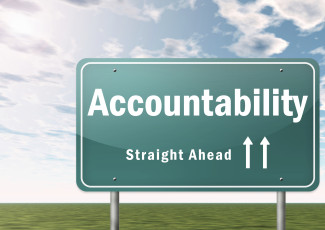Rigor and Accountability 2.0
By Irene H. Kovala
December 3, 2014
Community colleges are held accountable by many different local, state and federal entities and, most importantly, students.
If, like Rip Van Winkle, you’ve been asleep for a couple of decades, let me bring you into the bold new world of higher education; it is filled with rigor and accountability.
The early days of academia were laced with bearded men in long robes giving their wisdom from on high. The current world has shifted significantly with the advent and interpretation of new and complex laws, policies, accreditation standards and “citizens’ watch” groups, each with its own litany of rules and regulations to which all colleges and universities must answer.
Undaunted by such bureaucracy, colleges have risen to the occasion. They have become more transparent; they have focused on data-informed decision-making and meeting arduous reporting requirements, keeping employees informed of who is monitoring college outcomes and results. Gainful employment, Title IX, U.S. Department of Education, state and federal auditors and others comprise what the higher-education community has come to affectionately call the “tax code” — the standards by which each college must comply.
In complying with these standards and reporting on our outcomes, we must not forget the most important group we answer to: our students. We must first and foremost ask them: Are you getting what you paid for? As savvy consumers, millennials see higher education as an investment. Much like any other purchase, they want to see and reap the benefits of ROI every step of the way.
When it comes to determining student outcomes and success, accrediting agencies also have a vested interest — they are the gatekeepers of Title IV funds, with the ability to authorize, award and disperse financial aid. They are also under increasing scrutiny to verify real student-learning outcomes as a result of the higher-education experience. Once seen as a nasty word, assessment — and assessment practices — is now embedded in any college worth its salt.
Embracing accountability rather than fighting it serves higher-education institutions well, given our role as a deliverer of educational services in the community. Today’s consumer buys products or services with a guarantee, and colleges must hold themselves accountable to the same warranty standards that any other business does. To do that, transparent reporting of student demographics and success, business practices and philanthropic dollars is essential. In fact, it is the only way to give real meaning to the “value proposition” colleges bring to the student-success equation.
Read more about rigor and accountability in Recommendation 7 of the 21st-Century Commission on the Future of Community Colleges’ report Reclaiming the American Dream: Community Colleges and the Nation’s Future.








